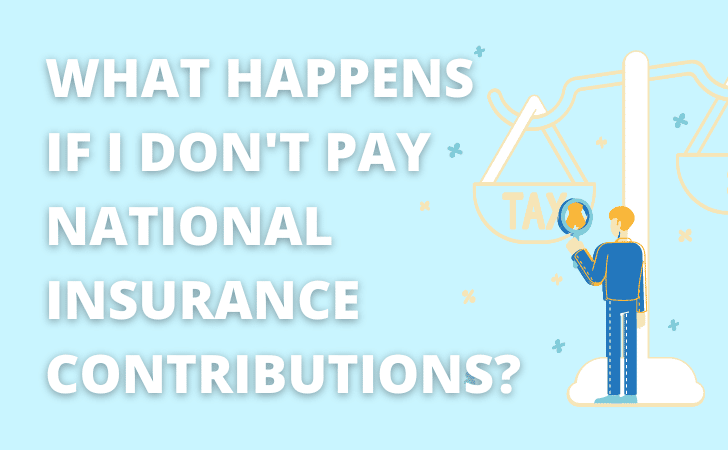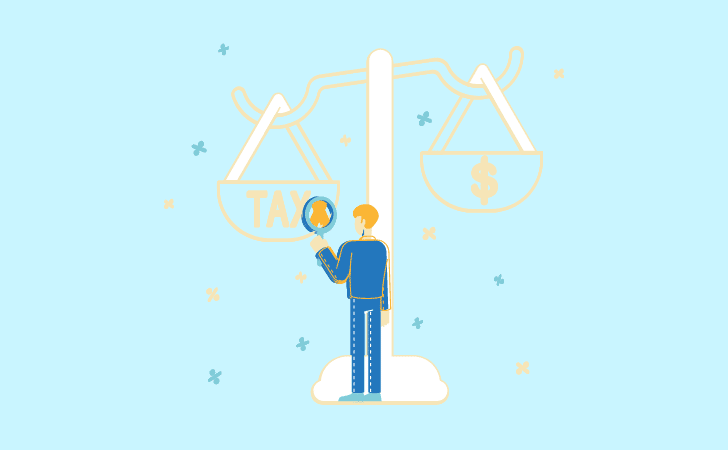National insurance is money you pay the UK Government out of your pay packet. National Insurance is a tax on your earnings.
The payments then go towards certain benefit entitlements, state pension, and statutory maternity pay. The contributions also help fund the NHS.
Not paying enough National Insurance contributions could mean you miss out on certain benefits later in life.
What are National Insurance Contributions?

You will need to start paying National Insurance contributions once you turn 16 and start earning money over a certain amount.
If you are employed and receive your wages on a PAYE system, your employer pays your contributions automatically, taking your NI contributions out for you. You’ll see this on your pay slip each pay period.
The amount of NI you pay depends on your earnings. If you are self-employed, you’ll be liable to pay your own NI out of your total earnings as part of your income tax.
The money paid out then helps your entitlement to social security benefits in the future.
Factors that determine the NI you pay
Several factors determine how much national insurance you pay:
- The amount of money you earn
- Your employment status
- Your age
If you earn less than the Lower Earnings Limit, then you won’t pay any NI at all.
How often do I pay National Insurance?
If you are employed and receive wages from an employer, you’ll pay NI on each pay packet. This could be monthly or weekly, depending on how and when you’re paid.
This applies to whether you are part-time or full-time.
If you work for yourself, you can choose to pay your NI contributions over the year, generally with your self-assessment tax return. But you’ll need to put money aside regularly so you’re not hit with a hefty bill you can’t meet.
Several benefits depend on National Insurance Contributions. These include:
- State Pension – which you’ll receive at state pension age.
- Incapacity benefits (due to illness or injury and you can’t work)
- Maternity allowance
- Bereavement allowance
- Contribution-based Jobseeker allowance for Class 1 NICs only
- Contribution Based New Style Employment and Support Allowance
- Bereavement allowance and payment
- Widowed Parent’s allowance
- Contributions also go towards funding the NHS
What happens if I don’t pay my NI?
UK National Insurance is essentially a tax on your earnings. So, if you earn enough, it is illegal not to pay them. If you don’t pay all of your NI contributions over your working life, you may end up with some gaps in your National Insurance record. This could mean you won’t qualify for certain benefits, such as maternity pay.
If you have gaps, you may find you can choose to pay voluntary contributions. If you have been claiming benefits due to disabilities and are unable to work, you may find you can claim National Insurance credits which help you claim benefits.
You can make voluntary national insurance contributions to top up any missed payments.
Can I be fined for not paying NICs?
Yes, you can. You can be penalised by the HMRC for not paying your National Insurance payments. Failure to pay could mean you’ll receive a Notice of Penalty Assessment, which you must pay within 30 days.
The National Insurance Contributions are mandatory for everyone in the UK over the age of 16 who makes a profit above the minimum threshold. Those that earn less can opt out of National Insurance.
To qualify for the State Pension, you must have paid National Insurance for at least ten years. There are exceptions to this if you have not been able to work due to disabilities or eligibility based on your husband’s NI contributions. You’ll also need a number of qualifying years to qualify for statutory maternity pay.
You may still be able to claim a state pension due to your husband’s national insurance contributions. NI does not affect any child benefit you may receive.
How do I check my National Insurance contributions?
You can access your account online and find out if you have any gaps in your NIC record. You’ll need a Government Gateway account. It’s easy to sign up and check your personal or financial information, and it can be done online. Once your account is activated, you can view your entire NI contribution record.
Your National Insurance Number will be sent to you once you turn 16 and stays the same for your whole life. It’s an important number to keep as it will help determine your NIC records, tax, self-assessment, and any benefits you are entitled to. You should be able to find your NI number on your payslip, P60 or any letters from the HMRC.
How much National Insurance do I have to pay?
The amount of National Insurance you pay depends on your earnings.
For example, if you earn £1,000 in a week, you’ll pay:
- nothing on the first £190
- 13.25% (£102.95) on your earnings between £190.01 and £967
- 3.25% (£1.07) on the remaining earnings above £967
This means your National Insurance payment will be £104.02 for the week. (source gov.uk).
Some employers will have to pay Class 1A and Class 1B rates if they give their staff benefits such as childcare or a company car.
You may have to pay Class 2 or Class 4 National Insurance contributions if you’re self-employed. Again, this depends on your profits:
- Class 2 if your profits are £6,725 or more a year
- Class 4 if your profits are £9,881 or more a year
Genuine work from home jobs that anyone can do
At the time of writing, men and women receive a State Pension when they reach the state pension age of 66, even if they retire from work before then. This age is currently under review by the Government.
If you need help tracking down your National Insurance number, you can call the National Insurance enquiries helpline on 0300 200 3500.
National Insurance rates increased in April 2022 by 1.25% to help fund the NHS and cover social care costs since the Coronavirus pandemic. You can check the latest NIC rates here.


